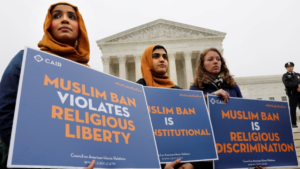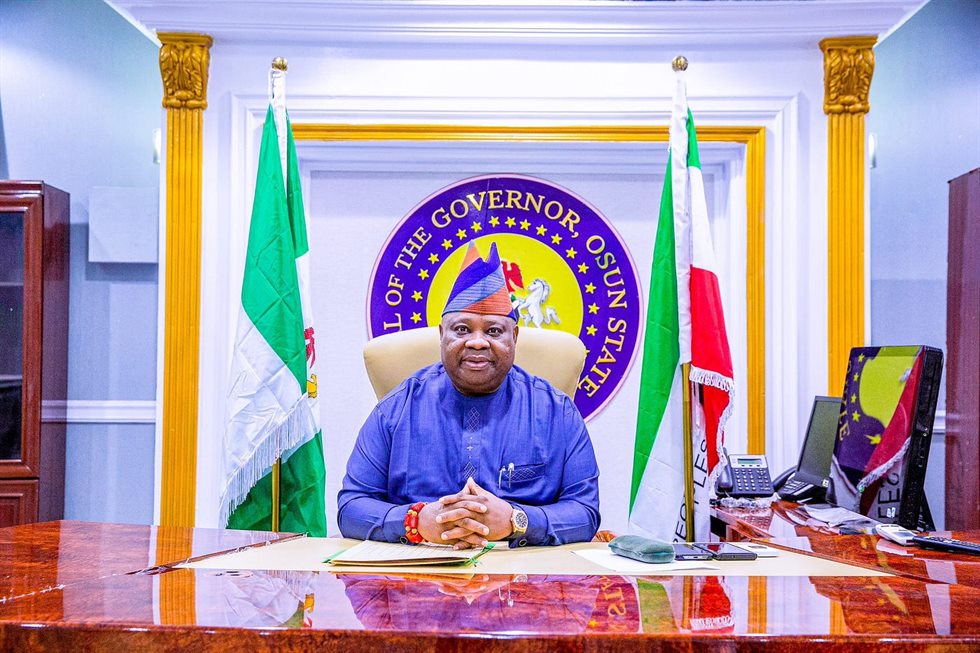Atlanta, GA – June 5, 2025 — Members of Atlanta’s Muslim community, along with civil rights organizations, are strongly condemning a recent travel ban reinstated by former President Donald Trump. Signed on Wednesday, the executive order imposes sweeping travel restrictions on individuals from several predominantly Muslim and African nations, set to take effect on Monday, June 9.
Under this new directive, entry to the United States will be denied to travelers from 12 countries, including Afghanistan, Myanmar, Chad, the Republic of the Congo, Equatorial Guinea, Eritrea, Haiti, Iran, Libya, Somalia, Sudan, and Yemen.
Additionally, citizens from seven other nations — Burundi, Cuba, Laos, Sierra Leone, Togo, Turkmenistan, and Venezuela — will face limited travel access under partial restrictions.
“There’s a growing sense of fear and unease within our local Muslim community,” said Aaron Butler, managing attorney for the Georgia chapter of the Council on American-Islamic Relations (CAIR). “Since the announcement, we’ve received a wave of inquiries from community members deeply concerned about the impact on their families.”

Butler emphasized the emotional and psychological toll of the policy, noting, “Many have immediate family abroad. This move isolates them, disrupts lives, and causes unnecessary trauma.”
The American Civil Liberties Union (ACLU) also issued a strong statement in opposition, with Sarah Mehta, Deputy Director for Immigration Policy and Government Affairs, criticizing the order. “This is another attack on lawful immigration disguised as a national security measure,” Mehta wrote. “We remember the turmoil from the first Muslim ban. This policy is a continuation of that discriminatory legacy.”
Trump’s justification for the order cites the need to bolster national security, alleging that some nations have been abusing the U.S. visa system. However, local leaders and immigration advocates argue the broadness of the ban unfairly targets entire populations based on nationality or religion.
Omar Shekhey, Executive Director of the Somali-American Community Center in Atlanta and a naturalized citizen originally from Somalia, called the decision “deeply troubling.”
“I came to this country for education and opportunity,” Shekhey said. “While there are challenges in Somalia and other Muslim-majority countries, punishing innocent families en masse is not the answer. Vetting individuals is one thing—banning entire nations is discriminatory.”
Shekhey reported a surge in calls from community members anxious about how the restrictions might affect their efforts to reunite with family abroad. “People are worried—about spouses, children, elderly parents. This ban changes everything.”
While the executive order includes exceptions for lawful permanent residents and certain visa holders, the limitations still pose major hurdles for many.
Human rights group Asian Americans Advancing Justice also joined in condemning the ban. Executive Director Murtaza Khwaja stated, “Immigration is a fundamental human right. Instead of turning people away, especially those fleeing war and oppression—often due to policies influenced by the U.S.—we should be welcoming them. This ban doesn’t secure us; it shrinks who we are as a nation.”
The administration has indicated that the list of affected countries may change, with additions or removals based on future assessments.
As protests mount and legal challenges begin to form, Atlanta’s Muslim community is standing in unified resistance, vowing to fight what they see as an unjust and damaging policy.



